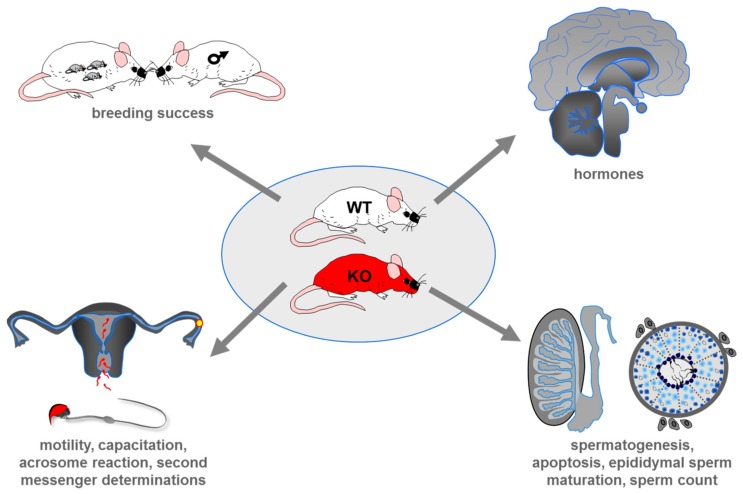Figure 4.
Experimental strategy to determine the impact of taste receptors for male reproduction. To gain a complete picture about a possible role of taste receptors for regulating male reproduction standard reproductive parameters (e.g., litter size, time to litter, sex ratio of pubs) were determined for breeding pairs of wild-type [WT] and taste receptor deficient animals [KO]. To evaluate whether genetic deletion of taste receptors affect spermatogenesis results of breeding experiments were supplemented by histopathological examinations of reproductive organs and isolated epididymal sperm cells; furthermore, reproductive-related hormones such as testosterone, LH, FSH and GnRH were quantified. To evaluate whether a loss of taste receptors modifies physiological sperm function, CASA (computer-assisted motility analysis) -based motility analyses were combined with experiments assessing the ability of sperm to respond to capacitation and acrosomal exocytosis stimuli.

